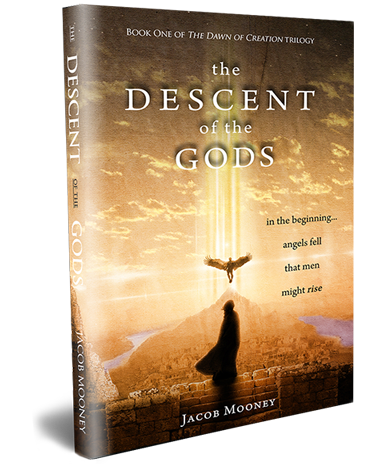Sextus Julius Africanus was another early influential Christian historian and traveler. Born around 160 AD, Africanus was an influence on historian Eusebius but had an impact on later writers.
Africanus penned the book entitled Chronographiai, a five-volume history of the world. This account spanned from the Creation of the world to the year AD 221, providing a chronological framework for significant events.
Today, there are no more existing manuscripts of the Chronographiai. Only parts and passages of it can be found quoted in the works of Eusebius, George Syncellus, Cedrenus, and the Chronicon Paschale. Eusebius also quoted from a letter that Africanus wrote to Aristides where he explained the apparent discrepancy between Matthew and Luke in the genealogy of Christ.
One of the many subjects that he touched on in his works was the enigmatic passage in Genesis 6:1-4 that mentions the Nephilim, the “sons of God,” and their interactions with humanity.

Unraveling Africanus’ Interpretation on Genesis 6:1-4
Africanus was one of the first to suggest that the “sons of God” referred to the descendants of Seth, rather than supernatural beings.
According to Africanus, the ‘sons of God’ denoted the righteous men and patriarchs who descended from Seth, culminating in the Savior Himself. On the contrary, the descendants of Cain were the “seed of men,” signifying their lack of divine connection due to the wickedness within their lineage.
This interpretation relied on the character of individuals rather than angelic entities.
“‘When men multiplied on the earth, the angels of heaven came together with the daughters of men.’
In some copies I found “the sons of God”. What is meant by the Spirit, in my opinion, is that the descendants of Seth are called the sons of God on account of the righteous men and patriarchs who have sprung from him, even down to the Saviour Himself; but that the descendants of Cain are named the seed of men, as having nothing divine in them, on account of the wickedness of their race and the inequality of their nature, being a mixed people, and having stirred the indignation of God.
But if it is thought that these refer to angels, we must take them to be those who deal with magic and jugglery, who taught the women the motions of the stars and the knowledge of things celestial, by whose power they conceived the giants as their children, by whom wickedness came to its height on the earth, until God decreed that the whole race of the living should perish in their impiety by the deluge.”
Chronographiai
Africanus did acknowledge alternative interpretations, such as the notion that the “sons of God” referred to angels, and even the quote he uses is translated as ‘angels’. However, without much explanation or acknowledgement of how the view had been previously interpreted by other church fathers such as Justin Martyr, Philo, Josephus or even the Apostle Peter, he shares that his opinion is that the ‘sons of God’ refer to the line of Seth.
He doesn’t fully discount the idea that the ‘sons of God’ may be angels, and says that if they were, then the proliferation of wickedness attributed to these events ultimately led to God’s decision to bring forth the great flood, cleansing the earth of impiety.
With limited knowledge on the history of Africanus, there is not much information on the sources that influenced his interpretation. Others like Augustine took this interpretation further, insisting that the ‘sons of God’ referred to the Sethites, and could not be referring to angels. However, none offered explanations why the angelic view had been the most common historical interpretation, or any explanation why Peter and Jude used terminology that could only be associated with this story in their epistles.
What noW?
Even today, the story of the Nephilim and the events in Genesis 6:1-4 continue to captivate scholars, both ancient and modern. Questions persist, and unfortunately, the internet is rife with misinformation and sensationalized content surrounding this topic.
We, Chasing the Giants, are diligently working to compile dependable resources and conduct quality research. By exploring ancient sources and presenting searchable data, we strive to shed light on the enigma surrounding the Nephilim, ultimately pointing to the truths found in Jesus Christ.






